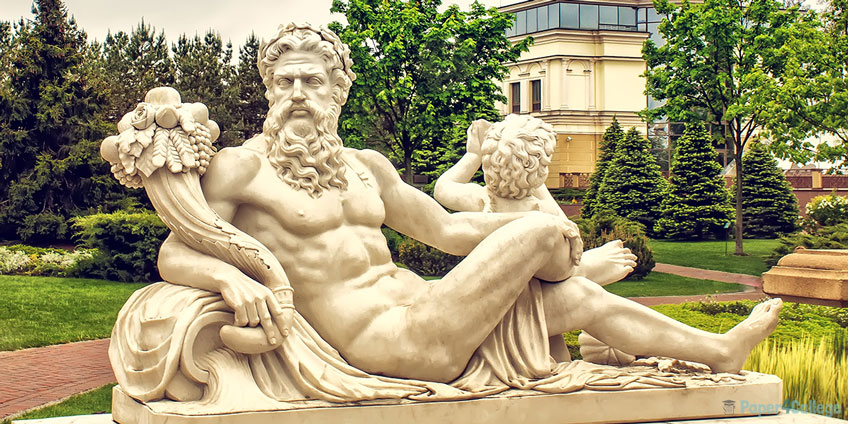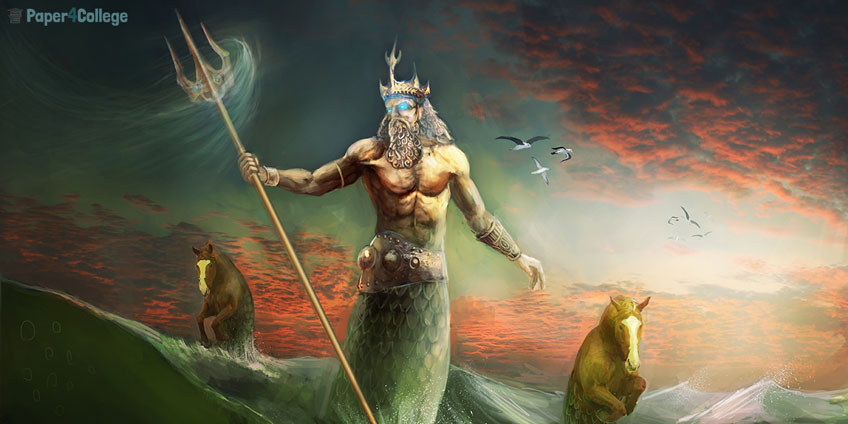Antique Greek Literature – General Information

When people ask why they should get acquainted with an antique Greek literature they often are answered that it has become a basis for all the European literature and that is true. If you are fond of literature or you simply like to read, Ancient Greek literature is a must-read because it is interesting and breath-taking. The second reason is that this literature considers to be classical and you never know when you will need such a knowledge. Greek mythology is perfect for kids; it tells the stories of good and evil, nobility and meanness, bravery and courage. Moreover, many classical and modern books contain allusions to the Antique Greek stories. Here you will find some basic information on this topic. If you are interested, welcome to the magical world of Ancient Greece.
Antique Literature

This term usually refers to the literature of Ancient Greece and Ancient Rome. It took place from the eighth century BC (the time when the Homer`s «Iliad» and «Odyssey» were written down for the first time) till the fifth century AC (when The Roman Empire had fallen). The notion «antique» itself comes from a Latin word and means «ancient», «pristine».
Peculiarities
- It is formed on a mythological basis.
- Anthropocentrism (which means that the human is in the center of the Universe and they is a purpose of all the happenings in the world).
The Traits of Antique Personality
First of all, antique personality is free (in all the meanings). Then self-sufficient and independent. Antique personality had to know the mythology and be a citizen of the city-state. He or she aspires to develop both the body and the soul in harmony (here we can talk about so-called «triad»: the beauty, the virtue, and the veracity common for all Greeks). The antique personality is godly and avoids «Hubris» - a notion for the arrogance and pride when a person wants to be equal with the God.
The Antique literature is full of binary oppositions (life-death, good-bad, beautiful-ugly, kind-evil). Moreover, ancient Greeks had their Nonesuch, which was called «Canon».
The literature at those times had several functions including ideological and socially educational (which means antique Greek theater). We can call this literature a «traditional» one.
The most popular form of the literature was the poetic prose. The great attention was paid to the classical world of the things and the description of the human environment as a perfect and beautiful one.
Periodization
- ARCHAIC. 8 century BC
A period of folklore, songs, tales, fables, riddles, heroic songs.
- CLASSICAL 8-7 c. BC- 4 c. BC
The best achievements of Greek literature that includes lyrics, drama, and prose.
- HELLENISTIC 4c. BC- 5 c. AC
This period is connected with Alexander of Macedon (Alexander the Great) who wanted to conquer the world and spread the culture of Hellenes. Meanwhile «Hellenism» is a synthesis of Hellenes and Eastern culture.
Antique Mythology

Epos is a heroic word, a word about the heroes.
Logos an intelligent word, a word that contains some judgment.
The Myth is a generalized word about the world, which should be explored in a figuratively sensual way. Could also be any excogitation or any fictional event. Some people say that myth is a story about the Gods, Demons, and Heroes.
Mythology is a set of the myth of a certain folk and a science that explores the myths.
The Functions of the Myth
- The first function allows understanding how this or that phenomenon or thing appeared and then manipulating it. It can be called cognitive and explanatory.
- The myth simulates human behavior; it is a basis for all the prominent acts of human behavior in general.
- The human beings experience the myth in a ritual way, the myth is fixed by the word and behavior, asserting the existing order.
- The myths contain the ancestor`s experience which is not a subject to doubt as this experience is the only true one.
- The myth is a collective experience, he has a function of the so-called folk-centered core.
It is very important to mention that myth is not a tale; the myth becomes the tale at the moments when it loses its explanatory function. The time at the myths is the time when everything begins when the world is formed. It is constant for the Gods and the Heroes. For all the rest the mythic time asserts the eternity, the life at different times due to metamorphosis. The structure of the world always consists of three parts (Olympus, the kingdom of people and the kingdom of Hades).
Cycles of Myths
- Explaining the emergence of the things (etiologic)
- Explaining the Universe origin (cosmogonic)
- Explaining the Gods origin (Theogony)
- Explaining the human beings’ origin (anthropological)
- The myths about the Heroes
- Calendar myths
- The myths about the doomsday (eschatological)
The first phase of the myths development depicts the fear of the people and is called chthonic. The second phase is called classical (Olympic or heroic). It describes the times of anthropomorphous Gods and Heroes. If you want to get an essay on this topic, visit this website paper4college.com/order.
Stages of Myths Development
- Fetishism. People found some things to support life and gave them some magical powers.
- Animism. Belief in the soul, the deification of animals and nature, for example, laurel, bull, swan, eagle, and owl were considered sacred.
- Anthropomorphism. There is nothing as beautiful and ugly as a human being, people endowed the nature with human traits. Meanwhile, it is also the stage of the critical attitude to the Gods, as they are born, they know about the death and sufferings, they can be tired and go to sleep. The only God who never sleeps is Hermes. The Gods are vicious as human beings, each of them is responsible for something, and they take care of the art.
